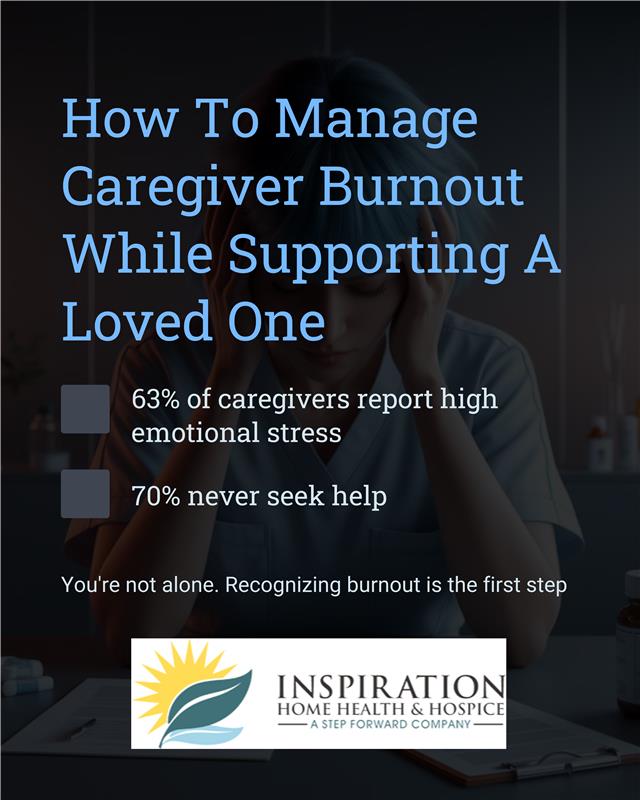Tom hadn’t had a full night’s sleep in months. Between administering his wife’s medications, helping with basic needs, and managing doctor appointments, he barely had time to shower, let alone address his own health concerns. “I’m fine,” he insisted when his daughter suggested he looked exhausted. “Karen needs me. That’s all that matters right now.”
What Tom didn’t realize was that by neglecting his own wellbeing, he was compromising his ability to provide the care his wife truly needed.
Recognizing the Warning Signs
Caregiver burnout is a state of physical, emotional, and mental exhaustion that can affect anyone caring for a chronically ill or terminally ill loved one. Throughout the Wasatch Front, dedicated family caregivers often sacrifice their own health without realizing the toll it’s taking.
Watch for these warning signs:
- Persistent fatigue that sleep doesn’t seem to remedy
- Withdrawal from friends, family, and activities once enjoyed
- Irritability or emotional outbursts that seem out of character
- Anxiety or depression symptoms
- Neglecting your own physical health needs
- Feeling that caregiving has taken over your entire identity
- Resentment toward the person you’re caring for (followed by guilt for feeling this way)
The Hidden Truth: Self-Care Isn’t Selfish
Many caregivers, like Tom, believe that taking time for themselves somehow diminishes their commitment to their loved one. In reality, the opposite is true.
As the flight attendants remind us: “Put on your own oxygen mask before assisting others.” This wisdom applies profoundly to caregiving. You simply cannot provide quality care when your own reserves are depleted.
Practical Strategies for Caregiver Wellness
Build Your Support Network
- Accept help when offered—keep a list of specific tasks others can do
- Connect with other caregivers through support groups
- Consider respite care services for short breaks
Protect Your Physical Health
- <li”>Schedule and keep your own medical appointments
- Aim for short but consistent sleep periods
- Keep healthy, easy-to-grab snacks on hand
- Find ways to incorporate even brief physical activity
Preserve Your Emotional Wellbeing
- Acknowledge your feelings without judgment
- Set realistic expectations about what you can accomplish
- Maintain connections with supportive friends
- Consider speaking with a counselor or therapist
How Hospice Can Help
When Tom finally reached out to Inspiration Hospice for his wife, he was surprised to discover how much support was available not just for her, but for him as well.
“The hospice team helped me realize that taking care of myself wasn’t abandoning my wife—it was ensuring I could be there for her fully,” Tom shared. “Their respite care gave me a chance to rest, and their social workers helped me process emotions I’d been bottling up for months.”
The Comprehensive Support System
Inspiration Hospice provides multiple layers of support for caregivers:
- 24/7 access to qualified nurses who can answer questions and provide guidance
- Home health aides who assist with personal care needs
- Respite care services that allow caregivers much-needed breaks
- Social workers who help navigate emotional challenges and connect with resources
- Volunteers who can provide companionship for patients while caregivers rest
- Spiritual support for processing complex emotions
Finding Balance in the Journey
A caregiver’s journey through a loved one’s terminal illness is undoubtedly challenging. But with proper support, it can also be a time of profound connection and meaning.
After implementing suggestions from the hospice team, Tom found he was not only less exhausted but also more emotionally present with his wife. “Instead of just going through the motions of care, I found we were having meaningful conversations again. I was actually able to be her husband, not just her caregiver.”
The Inspiration Difference
As one of Utah’s largest hospice providers, Inspiration Hospice brings comprehensive resources to families throughout the Wasatch Front. Yet our approach remains deeply personal—we see caregivers not just as partners in providing care, but as individuals deserving care themselves.
If you’re feeling overwhelmed by caregiving responsibilities, let us help lighten your load. You don’t have to face this journey alone.
Contact us at (385) 247-2020 or visit www.inspirationhospice.com to learn how we support both patients and their caregivers.

